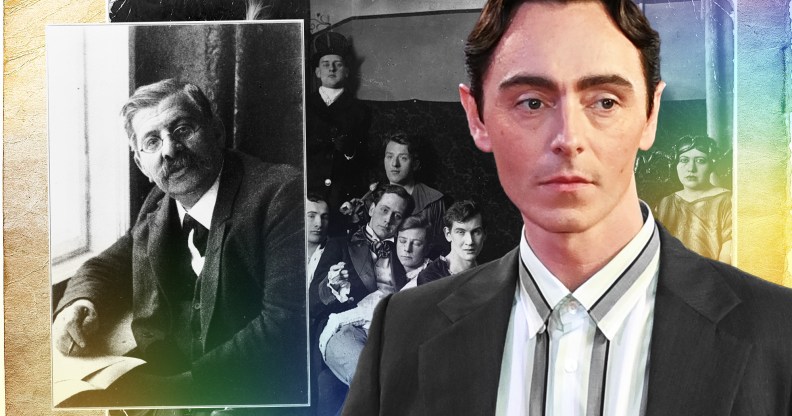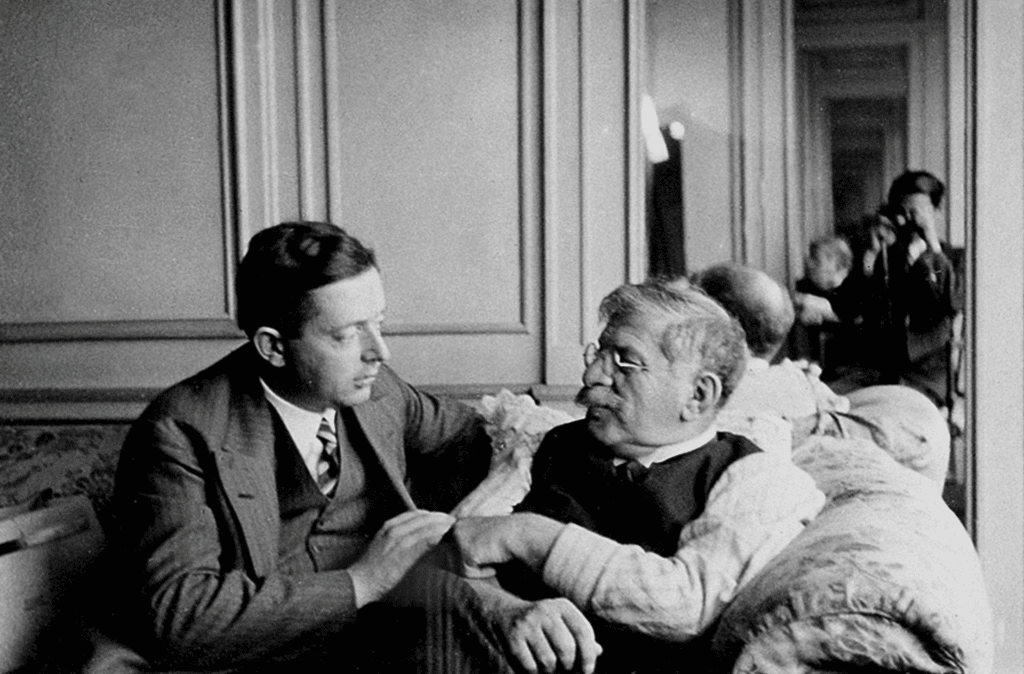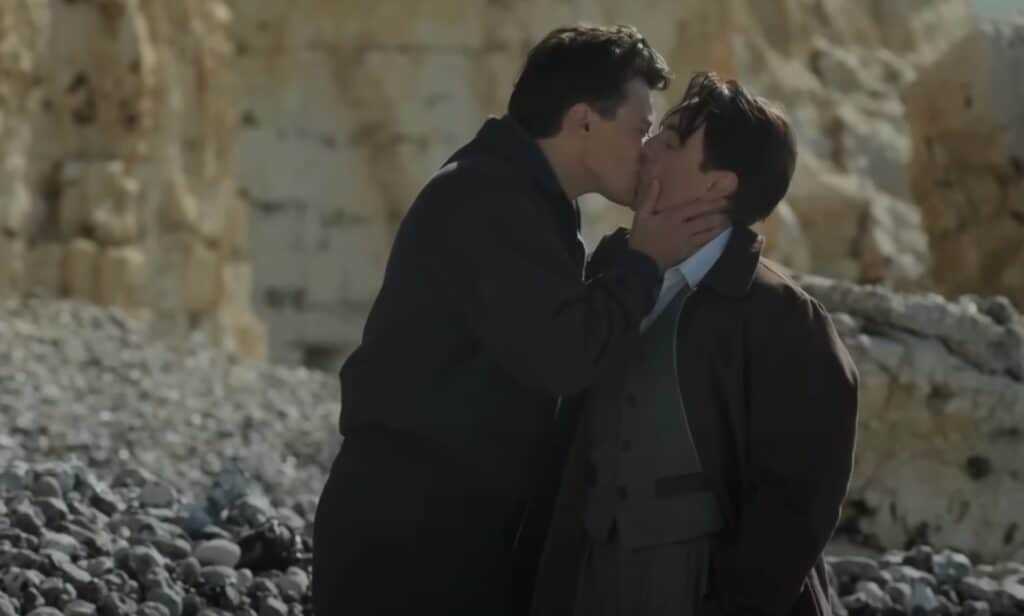‘Incredible queer pioneers’ who fought 1920s homophobia immortalised in new play by David Dawson

David Dawson’s new play remembers the Institute of Sexual Sciences. (Magnus-Hirschfeld-Gesellschaft / Getty)
As a big period drama fan, David Dawson had begun wondering “why aren’t there many about incredible queer people”.
“I’m a big history nerd because the way we are today is a jigsaw of what we have been,” the actor and playwright, most recently seen in My Policeman opposite Harry Styles, tells PinkNews.
So when he discovered the Institute of Sexual Science – which worked to abolish ‘Paragraph 175’, the law banning “an unnatural sex act between persons of the male sex”, in pre-Nazi Germany – he thought “why has no-one ever told me about this?”
And as well as their activism, this “incredible queer gang of pioneers” also starred in the first film to call for the decriminalisation and acceptance of homosexuality. It was called Different from the Others, and starred the Institute’s leader, Magnus Hirschfeld, and his lover.

Dr. Edward Elkan and Magnus Hirschfeld at the fourth conference of the World League for Sexual Reform in Brno, 1932. (Wellcome Images)
“How incredibly brave that was,” Dawson says, “and the language used within the movie, in terms of how they speak about being gay is incredibly modern.”
Dawson tells their story in his play The Institute, his first in over two decades, which has been shortlisted for the prestigious Bruntwood prize.
It’s set in 1919, yet, when breaking the story, Dawson found many parallels with today.
“I definitely feel that our rights in this country and in the US are quite vulnerable at the moment,” he admits.
It’s something he also felt while filming My Policeman, the 1950s drama in which he plays the lover of Harry Styles’ character.
“It certainly gave me a greater appreciation of how privileged I and my generation are to have the freedoms and the rights that we have. And that should not be taken for granted.
“We have to be very careful to not just think everything’s OK now. All around the world, the way society was set up in 1950s Britain is still a reality for many, many, many people.”

Harry Styles (L) and David Dawson in My Policeman. (YouTube/Prime Studios)
Dawson himself grew up under Section 28, anti-LGBTQ+ legislation put in place by Margaret Thatcher to prohibit “the promotion of homosexuality”.
“That wasn’t that long ago,” he points out, “so I would hope that my play holds enormous resonance.” But most of all, he wants people to leave the theatre thinking: “I want to be in that gang cause they are f**king cool.”
As LGBTQ+ representation on screen and on stage increases, there is increasing debate around whether queer roles should exclusively be played by queer actors.
The question has particularly haunted Dawson’s My Policeman co-star Harry Styles, who has spent the past year battling accusations of queer-baiting.
“I think it’s an incredibly nuanced question, actually,” Dawson says. “More than just a yes or no answer.
“We all know that there needs to be far more queer creatives in the industry, across the whole thing, whether that’s performers, producers, writers, directors, crew.
“But then anybody would love the opportunity to play anything they could as an actor. And also an individual’s journey of self-discovery can be quite long.”
However, he believes “we’re at the beginning of something very exciting” when it comes to queer creatives in the industry.
“It’s A Sin completely floored me, I thought that was a stunning piece of work. And Pose is something I always love to watch. Heartstopper is one of the biggest television hits at the moment.
“So I’m hoping we are at the start of a very exciting time when queer creatives are being encouraged and supported – and celebrated for their work.”
As for the next steps for David Dawson’s play? “That is a good question because I’ve never done this before,” he jokes.
“I’ve been talking to a few queer directors and I think the next step is to get a group of incredible actors together and hear it out loud for the first time.”
If the play makes it to the stage, he says, he hopes “people learn more about how incredible they [The Institute] were and what they were trying to achieve”.
“It’s a celebration of the queer community.”

